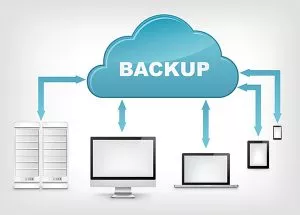The cloud has become one of the most popular methods of storage available to date. Whether for personal use or for business, its security, accessibility, and convenience have made it the perfect companion for data of all shapes and sizes.
If you have experience with cloud technology, you’ll know there are three main types currently on the market: private, public, and shared. However, you might not be aware that you have the option to combine all three. This environment is referred to as a hybrid cloud, and it comes with a variety of benefits and, of course, a couple of possible downsides as well. 
Conclusion
At StorageCraft, we believe the cloud is one of the best tools at the disposal of SMBs today. Our disaster recovery cloud is always ready to go for clients who need to recover lost data. Contact us today to learn more about our cloud and the solutions we can provide for your data backup and recovery needs.

A Bit More on Hybrid Clouds
So, what exactly is a hybrid cloud? Any combination of different cloud infrastructures connected to each other is considered a hybrid cloud environment. A proper hybrid cloud will contain strict encryption between all connected clouds (public, private, and/or shared) and is built to be used as an independent infrastructure.The Benefits for Your Business
There are a number of advantages when it comes to adopting a hybrid cloud for your organization. First and foremost is scalability. If your SMB is growing leaps and bounds year after year, having scalable storage that you maintain total control over is crucial to your company’s positive digital transformation. Another great benefit of a hybrid cloud is its cost-effectiveness. Because you can choose to use public clouds only when you need them, you’re putting fewer eggs and cash into that basket. Opting to store more data in a private cloud means less third-party costs in the end.The Possible Cons
Although the benefits largely outweigh the downsides, for some businesses, these could be deal breakers. For example, in the long-run, hybrid clouds are a much better value but starting costs can be quite high given the amount of hardware required for initial deployment. Also, proper cloud cohesion is incredibly important to the success of a hybrid cloud. If one cloud environment doesn’t fit well with another in a hybrid (the private is much faster than the slower, for example), it can cause a lot of trouble over time.Conclusion 
At StorageCraft, we believe the cloud is one of the best tools at the disposal of SMBs today. Our disaster recovery cloud is always ready to go for clients who need to recover lost data. Contact us today to learn more about our cloud and the solutions we can provide for your data backup and recovery needs.

You May Also Like
- Backup and Disaster Recovery Business Continuity Cloud Compliance Cybersecurity Data Protection Data Resilience Data Storage Ransomware
The Importance of Versatile Cloud Data Protection Support in a Multicloud World
December 3rd, 2024 - Backup and Disaster Recovery Business Continuity Cloud Compliance Cybersecurity Data Protection Data Resilience Ransomware
The Vital Role of Replication in Ensuring Data Resilience
November 20th, 2024 - Backup and Disaster Recovery Business Continuity Cloud Cybersecurity Data Protection Data Resilience Ransomware
Why Flexible Disaster Recovery Matters In a Hybrid World
November 12th, 2024